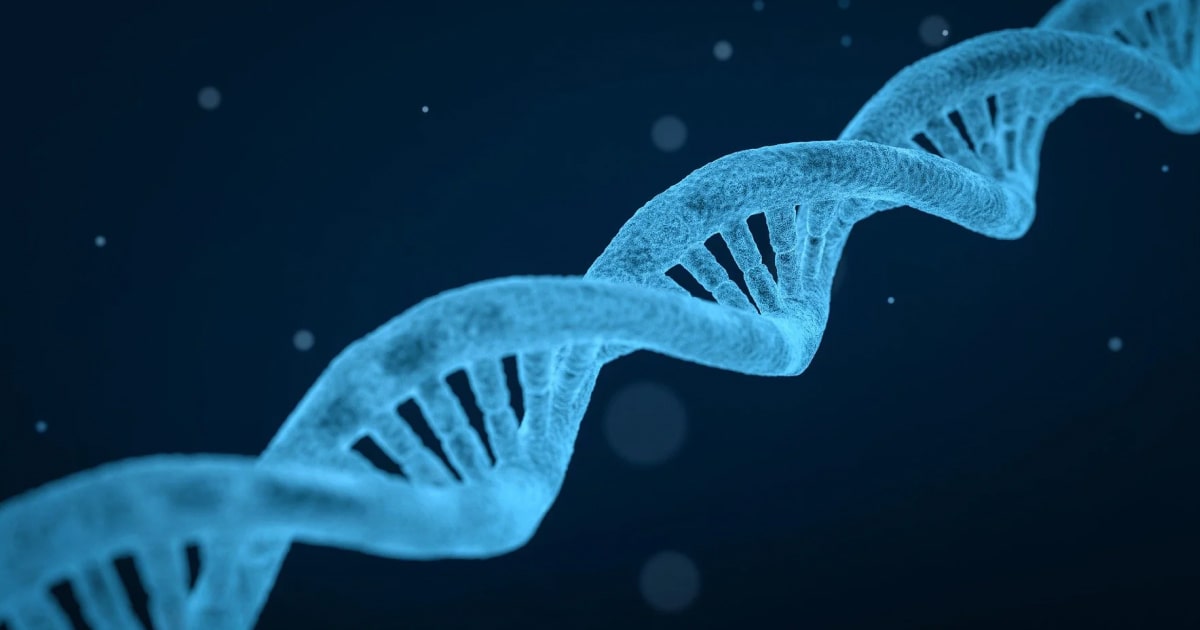
Expert Reviewed By: Dr. Brandon Colby MD
Thyroid Hormonogenesis Defect is a rare disorder that affects the production of thyroid hormones in the body. These hormones are crucial for the regulation of metabolism, growth, and development. In this article, we will delve into the understanding, diagnosis, and the role of genetic testing in managing this condition.
Understanding Thyroid Hormonogenesis Defect
Thyroid Hormonogenesis Defect, also known as congenital hypothyroidism, is a condition that affects the thyroid gland's ability to produce thyroid hormones. The thyroid gland is a butterfly-shaped gland located in the neck, responsible for producing hormones that regulate the body's metabolism, growth, and development.
There are several types of Thyroid Hormonogenesis Defect, each caused by a different genetic mutation. These mutations affect the various steps involved in the production of thyroid hormones, leading to a deficiency in these hormones. This deficiency can result in a range of symptoms, including:
- Delayed growth and development
- Intellectual disability
- Low muscle tone
- Constipation
- Dry skin
- Enlarged tongue
- Puffy face
- Hoarse cry in infants
It is essential to diagnose and treat Thyroid Hormonogenesis Defect early to prevent severe complications and ensure proper growth and development.
Diagnosing Thyroid Hormonogenesis Defect
Diagnosis of Thyroid Hormonogenesis Defect typically begins with newborn screening tests. These tests are performed shortly after birth and measure the levels of thyroid-stimulating hormone (TSH) and thyroxine (T4) in the blood. Elevated TSH levels and low T4 levels may indicate a problem with thyroid hormone production.
If the screening tests suggest a potential issue, further tests are conducted to confirm the diagnosis. These tests may include:
- Thyroid function tests to measure the levels of TSH and T4 in the blood
- Thyroid imaging tests, such as ultrasound or thyroid scintigraphy, to evaluate the size and location of the thyroid gland
- Radioactive iodine uptake test to assess the thyroid gland's ability to absorb iodine, an essential component of thyroid hormones
Once a diagnosis is confirmed, treatment typically involves hormone replacement therapy with synthetic thyroid hormone (levothyroxine) to ensure proper growth and development.
The Role of Genetic Testing in Thyroid Hormonogenesis Defect
Identifying the Specific Type of Thyroid Hormonogenesis Defect
Genetic testing can be a valuable tool in determining the specific type of Thyroid Hormonogenesis Defect. By identifying the genetic mutation responsible for the condition, healthcare providers can better understand the underlying cause and tailor treatment accordingly. This information can also be helpful for family planning and understanding the risk of passing the condition on to future generations.
Prenatal Diagnosis
For families with a known history of Thyroid Hormonogenesis Defect, prenatal genetic testing can be performed to determine if the fetus is affected by the condition. This information can help families make informed decisions about their pregnancy and prepare for any potential challenges associated with the disorder.
Carrier Testing
Carrier testing can be performed on individuals who have a family history of Thyroid Hormonogenesis Defect but do not show symptoms themselves. This testing can determine if a person carries a mutation in one of the genes associated with the condition. If both parents are carriers, there is a 25% chance that their child will be affected by Thyroid Hormonogenesis Defect.
Genetic Counseling
Genetic counseling is an essential component of the genetic testing process. A genetic counselor can help individuals and families understand the results of genetic testing, discuss the implications of these results, and provide guidance on managing the condition. This support can be invaluable for families affected by Thyroid Hormonogenesis Defect.
In conclusion, understanding, diagnosing, and using genetic testing for Thyroid Hormonogenesis Defect is crucial for ensuring proper growth and development in affected individuals. By identifying the specific type of the disorder, providing prenatal diagnosis, carrier testing, and genetic counseling, healthcare providers can better manage and support families affected by this rare condition.
About The Expert Reviewer
Dr. Brandon Colby MD is a US physician specializing in the personalized prevention of disease through the use of genomic technologies. He’s an expert in genetic testing, genetic analysis, and precision medicine. Dr. Colby is also the Founder of and the author of Outsmart Your Genes.
Dr. Colby holds an MD from the Mount Sinai School of Medicine, an MBA from Stanford University’s Graduate School of Business, and a degree in Genetics with Honors from the University of Michigan. He is an Affiliate Specialist of the American College of Medical Genetics and Genomics (ACMG), an Associate of the American College of Preventive Medicine (ACPM), and a member of the National Society of Genetic Counselors (NSGC)